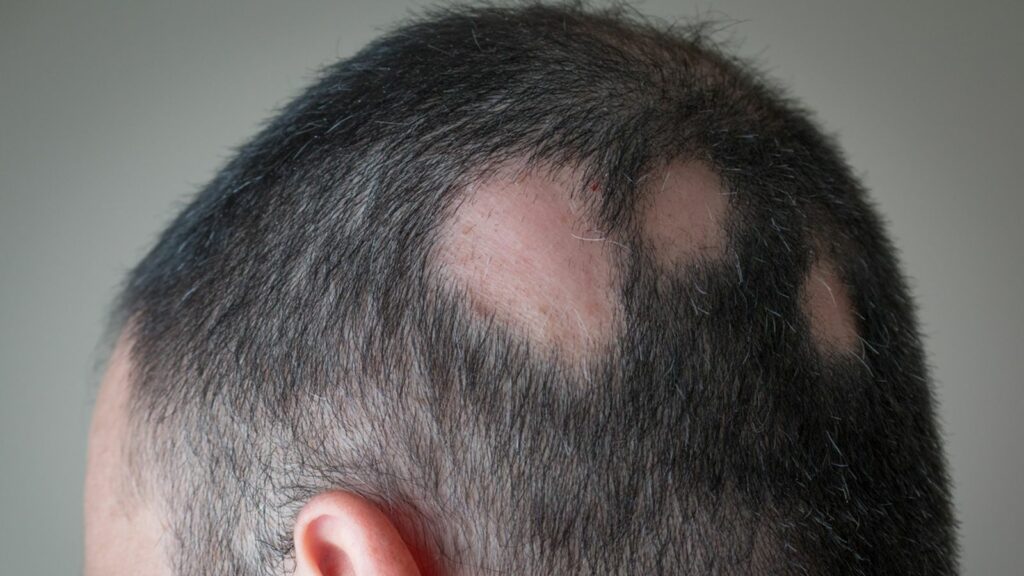Alopecia: First ever treatment approved for NHS use marks ‘monumental day’ | UK News

Thousands of patients could benefit from the first ever alopecia treatment approved for the NHS.
Alopecia areata is an autoimmune disease, where the body’s immune system attacks the hair follicles and causes hair to fall out.
Alopecia UK hailed the decision as a “monumental day” for people with the condition, with patients going “far too long” without NHS treatment.
“For far too long, patients with alopecia areata have gone without a licensed treatment option available via NHS pathways,” the charity’s chief executive, Sue Schilling, said.
“If new treatments are only available privately, it becomes a case of the ‘haves and the have nots’, this… recommendation will go some way to address this.”
People with severe alopecia areata can now be prescribed a daily tablet to improve hair regrowth, after the green light from the National Institute for Health and Care Excellence (NICE).
The health body said up to 14,000 people could benefit from Ritlecitinib, which is also known as Litfulo, and people over 12 with severe alopecia should have access to drug, made by Pfizer.
NICE initially rejected the drug last year, but said it was able to reverse its decision following a public consultation and getting more information about the drug and a discount on its price.
As a result, it was able to recommend the drug as a “clinically and cost effective” treatment for use in the NHS.
The new treatment works by reducing enzymes that cause inflammation and subsequent hair loss at the follicle.
Helen Knight, director of medicines evaluation at NICE, said they heard how “severe alopecia areata can have a significant impact” on people’s “health and quality of life”.
Read more:
Louis Theroux shares alopecia update as hair loss affects eyebrows
Alopecia charity offers alternative Will Smith speech
“I’m delighted that we are now able to recommend this innovative treatment,” she added.
A spokesperson for NHS England said this “latest innovative treatment” could “greatly benefit thousands of people”.
Recent Posts
- Sepi Penerbangan, Kemenhub Cabut Status 17 Bandara Internasional
- MKD Sebut Pelat DPR di TKP Brigadir RA Bunuh Diri Palsu
- Archer, Joby sign deals to accelerate launch of air taxi services across UAE
- Comment: Final call for Agent Achievement Awards entries
- Bank Sumsel Babel Catatkan Kinerja Positif di Triwulan I Tahun 2024
Recent Comments